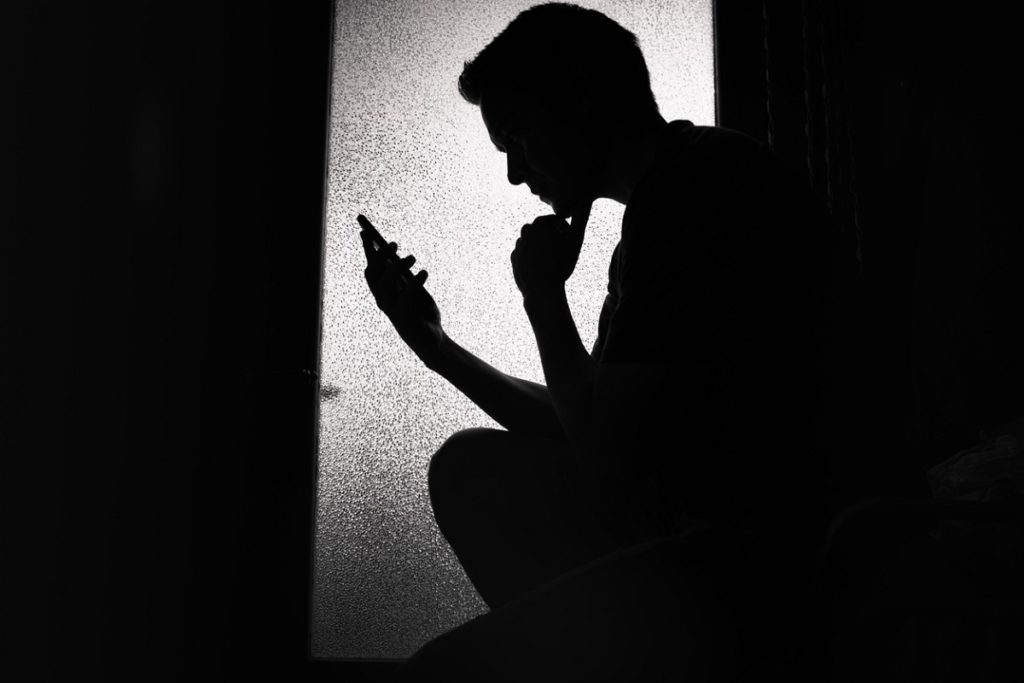The argument for anonymity on social media is important because it is this that allows individuals to freely express themselves without fear of repercussion.
Yet this is also precisely the reason it has become a cloak from under which to send a barrage of hateful messages on social media, and why some have suggested putting a stop to it.
Calls to prohibit ‘anonymous’ social media accounts have intensified during the pandemic throughout which period online abuse has increased. From death threats to racism, our online spaces have turned into toxic cesspits of hate.
The sheer volume of abuse some people receive from anonymous accounts is enough to make even the most privacy-conscious question their commitment to anonymity on social media.


Yet it’s unclear whether ending anonymity on social media is the best action to take.
It’s hard to ignore, for instance, the importance of preserving anonymity on social media for users living under oppressive regimes.
Back in 2011 a Facebook group that played a significant role in inspiring protestors to march on Tahir Square was initially administered by a pseudonymous account, something which helped the creator avoid the considerable risks associated with acting under his real name.
Attempts by social networks to crack down on the use of pseudonyms, or implement new ‘real name’ policies, have previously silenced bloggers reporting from dangerous locations and have historically been met with resistance from rights groups, who have long argued that it protects people from harm across the globe.
Whistleblowers also rely on anonymity to voice their concerns while ensuring they won’t lose their jobs or, depending on the government, be subject to criminal punishment or even death. Such accounts exist in authoritarian regimes, but British accounts such as The Secret Barrister are a reminder that hiding one’s identity can enhance a person’s ability to speak truth to power even in the West.
I remain unconvinced ending anonymity on social media will have the desired effects people think it will. Enforcing a ‘real names’ rule worldwide on a site like Twitter would potentially gag accounts in places where freedom of speech is a genuine and pressing concern and not just armchair politicking.
Domestic legislation won’t impact foreign accounts, meaning comments from all other countries – as well as those using location-spoofing technology like VPNs – won’t be affected. Labour MP Jess Phillips illustrated this point in an exchange on the subject three years ago when she revealed that her quest to take legal action against a troll led her to a server in Colombia.
Although anonymous accounts seem to encourage uncivil, abusive behaviour in and of themselves, ending their presence on social media would not end the culture of incivility now pervasive in most online settings. It’s not surprising that this status quo has arisen, since many crucial social cues, like eye contact, cannot be found in digital settings.
Social media users will continue to follow the rules of the game, anonymous or not, unless we make attempts to positively modify our online spaces by introducing frameworks that promote civil discussion.
The case for preserving anonymity rests partly in the promise this sort of solution offers. Twitter’s decision to road test a ‘read before you tweet’ pop-up last year to combat disinformation led to the proportion of people reading articles before sharing them increasing by 33 per cent. A similar warning regarding rude replies has recently been relaunched.
Any remedy to the problem of online abuse – including ending anonymity on social media – involves some fundamental alterations to how social networks currently operate. It’s just a question of what sacrifices we want to make.
Take platform moderation, for example. Pushing this concept to its logical extreme, we would see every single post and comment on a given social network going through a moderation procedure before posting. This would seemingly reduce abuse in a much more effective way, targeting not just anonymous accounts for being anonymous, but also abusive individuals for being abusive.
The sacrifice here would be the instantaneous nature of communication – but personally, I would rather see social networks reimagine their approach to moderation than lose anonymity.
The very fact that an end to anonymity on social media is being seriously entertained, considering its merits, is a sobering reflection of the scale of the abuse people now suffer online. However, ending it would be rife with practical difficulties and human rights concerns, and would not necessarily create sustained change.
If we really do want to get to the root of the problem, then social networks need to be held accountable; and content moderation, as well as technical modifications to promote civil discussion, need to be more seriously explored.












